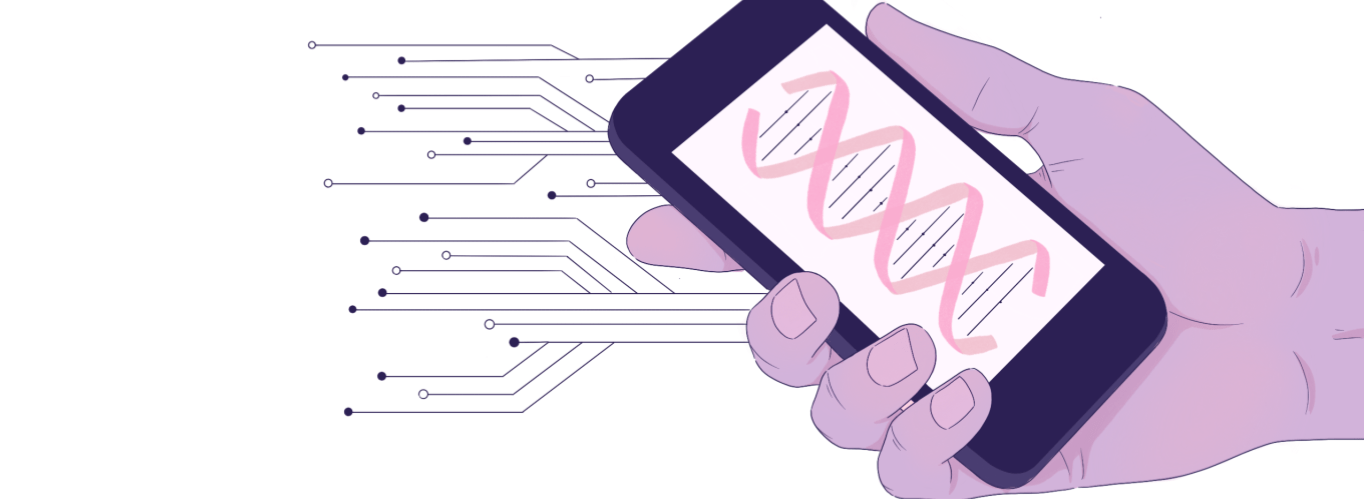FROM DEVICES TO BODIES
#artificial intelligence #facial recognition #surveillanceA short documentary web series about data collected from our bodies across territories
Beyond devices, our bodies are also becoming data sources. From facial recognition to the collection of DNA information, there is a growing tendency to extract data about our bodies. “Secure”, “healthier”, “smarter” are common narratives behind biotech and digital technologies monitoring our bodies in order to compose datasets that, crossed with information from our digital interactions, are taking worrisome practices of profiling to another level. The context of COVID-19 is also accelerating this trend.
Do you know that if your distant cousin has taken a DNA ancestry test, law enforcement agencies can deduct your DNA and even wrongly match you with a crime scene? What if health insurance companies have access to it and assume you are prone to develop certain diseases? Collecting DNA data about our bodies makes it even more evident that privacy is a collective matter.
But our bodies are turning into datasets in contexts of lack of proper regulation. They are being analyzed by algorithms that reproduce gender inequalities in all its intersectionalities of race, sexuality, class, ethnicity, etc. All under an ongoing trend of abusive practices in data sharing and monetization of sensitive data. Furthermore, if it was already critical that consent has been given away to digital platforms by a simple click of an “agree” button (designed as a commitment to unread terms of services and privacy policies), when data is collected from our bodies, what does it actually mean to consent? What if data subjects are immigrants crossing boarders, inmates in the end of their sentences or patients of COVID-19? What if our DNA is used by a suspicious and patriarchal partners for an infidelity tests?
With those and many more questions in mind, today, Coding Rights is launching a short documentary web series with enlightening conversations that have the goal to set the grounds and amplify debates about the implementation of technologies that use data about our bodies.
You can watch the two full episodes, with Portuguese subtitles, on Coding’s YouTube channel or by following the links below:
Episode 1: DNA Data Collection
Episode 2: Facial Recognition: gender, race, and territory
More information about each episode below:
Episode 1: DNA Data Collection
The first video is about human rights challenges faced by the increasing collection of DNA information by both companies and law enforcement agencies in the US, Brazil, and UK, but also with the analysis of some case studies from other parts of the globe.
Our video departs from edits of our panel “A tale on DNA”, organized at Rightscon 2020. On the occasion, Joana Varon and Mariana Tamari, from Coding Rights team, were joined by Jennifer Lynch, the Surveillance Litigation Director at the Electronic Frontier Foundation and Helen Wallace, Executive Director of GeneWatch, for a virtual chat about DNA data collection.
Short introduction of the guest participants:
Jennifer Lynch, the Surveillance Litigation Director at the Electronic Frontier Foundation
Leads EFF’s legal work challenging government abuse of search and seizure technologies. She founded EFF’s Street Level Surveillance Project, which informs advocates, defense attorneys, and decisionmakers about new police tools. She writes extensively about DNA, face recognition, and government tracking technologies, including influential white papers on biometric data collection in immigrant communities and law enforcement use of face recognition.
Helen Wallace is Executive Director of GeneWatch, UK
Specialist in the ethics, risks and social implications of human genetics. She has published extensively on issues associated with genetic science and technologies; given expert evidence to numerous parliamentary committees and the European Court of Human Rights. Helen worked as an environmental scientist in academia and industry and as Senior Scientist at Greenpeace UK, where she was responsible for science and policy work on a range of issues. She has a degree in physics from Bristol University and a PhD in applied mathematics from Exeter University.
Episode 2: Gender, Race, and Territory
The second episode of our web series discusses the dangers of implementing facial recognition technologies, whether in CCTV cameras on the streets or certain public spaces, or as a form of authentication for identity documents, especially when it comes to Black women and the transgender population.
Joana Varon, this time, interviewed MIT researcher Joy Buolamwini, who, among many other things, defines herself as a “code poet” and is the Founder of the Algorithmic Justice League. The conversation took place at MIT, the Massachusetts Institute of Technology, when the COVID-19 pandemic and social distancing were not yet imperative. The conversation with Joy turns into a back-and-forth with the Brazilian context through interviews with researcher Mariah Rafaela, an activist and doctoral student discussing gender-based violence against the transgender population, who is also a consultant for Coding in a new study on facial recognition and transgender individuals that we are about to launch. Also with our dear Twitter personality and computer scientist Nina Da Hora.
From Devices to Bodies:
Episode 1: DNA Data Collection
